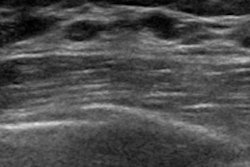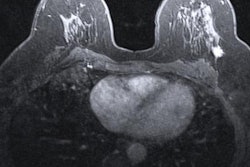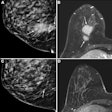Dear AuntMinnie Member,
Researchers using a specialized MRI scanning protocol may have discovered a new biomarker that could be used to detect early changes in the brain that are a potential hallmark of Parkinson's disease.
A group from the U.K. employed an MRI technique called quantitative susceptibility mapping to detect elevated concentrations of iron in different areas of the brain. They found that patients who had worse cognition and memory had higher iron concentrations -- suggesting that these concentrations could contribute to cognitive dysfunction.
MRI was also used in several other intriguing studies published in the past week. The modality was able to detect gender differences in blood flow between healthy men and women, while in a separate study researchers found decreased cortical thickness in people on antipsychotic drugs.
And in a significant new study, researchers demonstrated that a 10-minute breast MRI protocol worked better than digital breast tomosynthesis in detecting invasive cancer in women with dense breast tissue.
Get these stories and more in our MRI Community.
Breast screening in older women
On the topic of breast imaging, a new study questions whether continued screening mammography for women over 75 is worth it. Researchers from Harvard University followed over 1 million women in the Medicare system, finding that breast screening over age 75 did not reduce breast cancer deaths "substantially" over eight years of follow-up.
Also in our Women's Imaging Community, a study found that supplemental screening ultrasound in women with a personal history of breast cancer had a mixed performance, while another study found that handheld ultrasound was slightly preferred by patients over automated breast ultrasound.
Read all about the latest research in the field in our Women's Imaging Community.
Coronavirus concerns continue
Finally, worries over the global outbreak of novel coronavirus disease (COVID-19) continue to grab headlines. We've been monitoring the situation closely in our CT Community.
A disturbing study released February 27 indicates that people who have recovered from COVID-19 may still be carrying the virus at levels that can't be detected on DNA tests. New studies come almost daily, giving radiologists guidance on what they should look for in patients who might have COVID-19 infection, while CT continues to demonstrate that it could be better than DNA testing for early diagnosis of the disease.
Continue checking back in the CT Community for the latest on this fast-moving story.



















